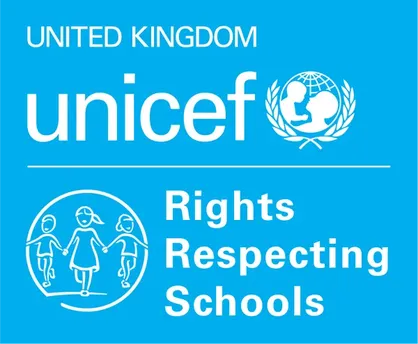The steering group is a group of young people and adults from across the school community who lead the schools’ Rights Respecting work.
The steering group is most effective when they have the support of the headteacher, governing body and senior management team from the outset, so that they can influence and drive forward change. As this group has a leading role to play it is important that the group is representative of the whole school community. It is also important that the group meets regularly and with clear agendas and action points so that the group can:
- To take the lead in developing and delivering the school’s Rights Respecting action plan.
- To ensure that the whole school is aware of the Rights Respecting Schools Award.
- To provide a link between children and young people, teachers, senior management team, governors and the whole school community.
- To regularly feedback to the school community about progress, including to the SMT, governors, staff and parents.
- To prepare for the assessment by collating evidence and being able to meet with the assessor(s).
Forming the steering group
The steering group is made up of adults and children from across the school community. The steering group can be a completely new working group, specially formed to work on RRSA, or a working group or sub-committee of an existing school council, with additional adults and children and young people from within the school community. It could also be developed from another school action group.
It should include a high proportion of children and young people who represent different year groups and reflect the diversity within the school, at least one member of the senior management team and other teachers (with key roles in school, or with a level of knowledge, influence and enthusiasm in this area).
You might want to consider including support staff like office or lunchtime staff, a governor or member of the parent council, a parent, a member of the local community who is involved in the school (such as police, health workers, local faith leaders) and representatives from other school groups.
Ideas to start the work of the steering group
These are some suggested ideas that schools have told us are helpful to get the RRSA work off to a good start.
Audit, action planning and evaluation
- Find out how rights respecting your school already is by asking pupils a number of questions, you can use the pupil questionnaires to help you.
- Decide how you will use the pupil questionnaires. Some schools survey all the children, some identify certain classes and some use a small focus group with children from different classes.
- Discuss the results and use them to add to your Bronze Audit and Action Plan.
- Identify from the Audit and Action Plan what the priority areas are.
- Write and regularly update the audit and action plan and identify any actions needed.
- Agree and decide how the steering group can monitor and evaluate actions.
- Many schools find it very useful to repeat the questionnaires annually or as needed to see what difference has occurred.
- Be involved in the self-evaluation leading up to assessment.
Training and awareness raising
- Produce guidance and information for teachers, children and young people, parents and others to help spread knowledge and awareness of rights. In some schools children have made videos, written songs and devised games to make this fun.
- Coordinate regular training sessions to develop understanding of the RRSA for teachers and students. You might want to consider letting young people lead the training session.
- Discuss with curriculum coordinators and subject leaders how they can incorporate CRC into their lessons.
- Hold sessions for parents or governors to explain the CRC and the RRSA
- Check that RRSA is visible in assemblies, displays and lessons. Some schools find that learning walks are helpful to do this.







